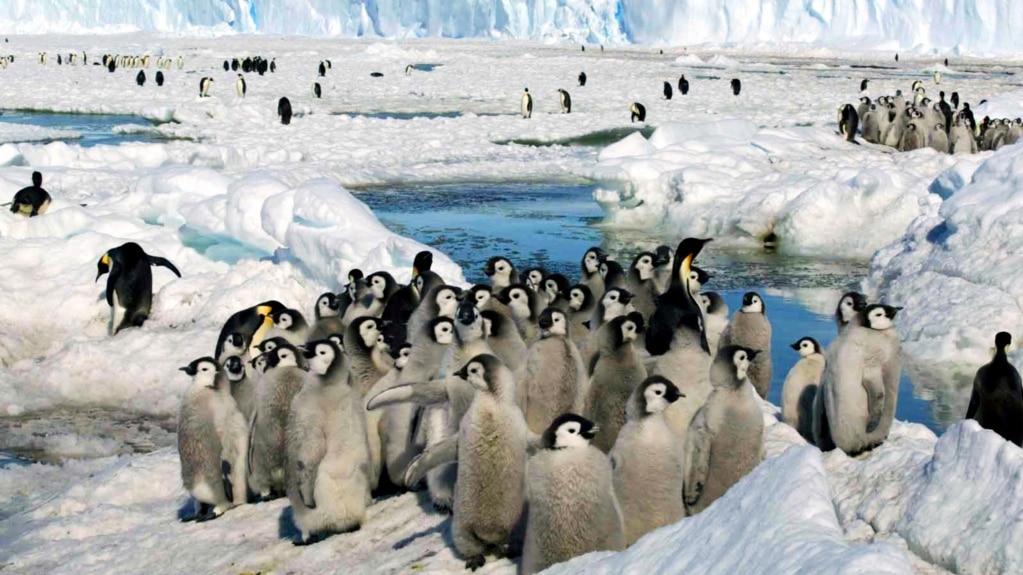Researchers, using information gathered by satellites, say the loss of ice in Antarctica hurts the survival chances of rare seabirds.
The large flightless birds are called emperor penguins. They raise their young in groups, or colonies, on ice that forms around the continent. The ice partly melts during the summer months.
The British and French researchers studied satellite images to look at five breeding colonies of the birds in the area of the Bellingshausen Sea in 2022.
They said the images showed no sea ice was left in December during the Southern Hemisphere’s summer. This also happened in 2021, the researchers noted.
The scientists said four of the five colonies they studied had been affected by early sea ice loss.
Emperor penguin chicks are born on the ice in Antarctica that forms during the winter there. The ice is important because penguin chicks do not develop waterproof feathers for one to two months after they are born.
Peter Fretwell is a researcher with the British Antarctic Survey who helped write the study. He said, “If the sea ice breaks up under them, the young chicks will drown.”
The scientists published their research in the journal Communications Earth & Environment.
Fretwell’s team also started a study of places where the penguins make their nests across Antarctica. They were able to identify the nesting places in satellite images because the birds’ waste is darker than the surrounding snow. The scientists estimate that there are 300,000 breeding pairs of emperor penguins in Antarctica. The birds are the world’s largest penguin.
Fretwell told the Associated Press that 30 percent of the 62 known penguin colonies were hurt by low levels of sea ice. He said 13 colonies likely failed.
Daniel Zitterbart studies Antarctica at the Woods Hole Oceanographic Institution in the state of Massachusetts. He was not involved in the study. But Zitterbart said he was not surprised by the results of the penguin study.
He said that, if penguins are not successful breeding in one place, they might look for another place next year. The population could recover.
But Zitterbart noted, “If you look further out down the line, how many suitable places will be left?”
I’m Dr. Gena Bennett.

